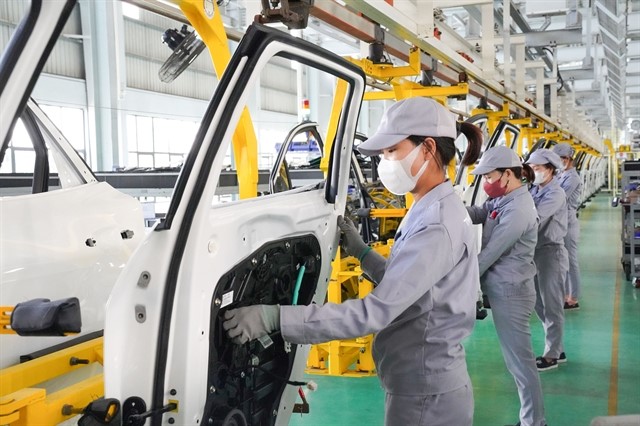The domestic used car market has shown a robust recovery in the first half of 2024, marking a significant turnaround from the downturn experienced in 2023, according to industry insiders.

The domestic used car market has shown a robust recovery in the first half of 2024, marking a significant turnaround from the slump experienced in 2023, according to industry insiders.
The increased demand has been particularly notable for high-end cars and elite vehicles. This resurgence signals not only a revitalisation of the automotive sector overall but also underscores the promising growth prospects for the used car market in the coming months.
According to the Market Research and Analysis Department of Nextgen Vietnam JSC (oto.com.vn), the first three months of 2024 witnessed a sudden growth in the used-car market, followed by a slight slowdown in April and May. Despite these fluctuations, overall it remained positive, indicating a gradual stabilisation of purchasing power and a sustainable growth trend in the market.
In the mid-range segment, which includes cars priced between VNĐ500 million and VNĐ1 billion (US$20,000-40,000) there has been a strong increase in liquidity. Supply rates have also consistently risen over the past four quarters. This segment is particularly appealing to buyers due to its reasonable pricing, catering well to diverse consumer needs.
The number of views for car advertisements has seen a significant rise of 35 per cent, compared to the same period last year, marking a 20.7 per cent increase compared to the second half of 2023. Cars under three years old are particularly popular and tend to sell quickly. SUVs and crossover vehicles are highly valued for their quality, competitive pricing and cost-effectiveness compared to purchasing new.
The used car market for vehicles over five years old has generally maintained stable prices, with occasional increases observed in SUVs due to their versatility. Interestingly, the liquidity of cars aged between five to ten years has improved significantly, with the average selling time reducing to just 15 days compared to 18-20 days in 2023. This trend underscores growing consumer preference for used SUVs, particularly as fuel prices rise.
The selling prices of used cars have seen a moderate increase of between five and ten per cent compared to 2023. Two primary factors contribute to this uptick, fewer users opting to exchange their cars for new ones and heightened demand pushing up prices in the used car market. Vehicles designed for off-road use and those with higher ground clearance, often referred to as 'surfing' cars, are steadily regaining popularity.
Market activity in May exhibited signs of deceleration as buyers anticipated a potential 50 per cent reduction in registration fees. However, by the end of June, there were indications of renewed interest and increasing shopping demand in the market. This fluctuation reflects the sensitivity of consumer behavior to policy changes and economic conditions.
In the first half of the year, the used car market saw a notable increase in the number of used car dealerships, with growth ranging from 18 per cent to 22 per cent across different provinces.
Furthermore, the market witnessed an expansion in the presence of Chinese cars and 'green cars' both in new and used vehicle categories. This growth indicates a shifting consumer perception towards Chinese brands and environmentally-friendly vehicles. It also highlights new avenues for development within the used car market, potentially broadening its appeal to a more diverse customer base.
These developments underscore a period of dynamic growth and diversification within Vietnam's used car industry, driven by both increased market participation from major players and evolving consumer preferences towards different vehicle types.
According to Nextgen Vietnam's outlook, the used car market suggests optimism based on positive signals from the macroeconomic environment. Despite the challenges in accurately predicting market trends, they anticipate a potential boom, particularly during the year-end peak shopping season.
Moreover, a policy under consideration to reduce registration fees by 50 per cent for new domestically produced and assembled cars, potentially effective from August, is likely to stimulate demand in the new car market. — VNS
- Tags
- Used car market






